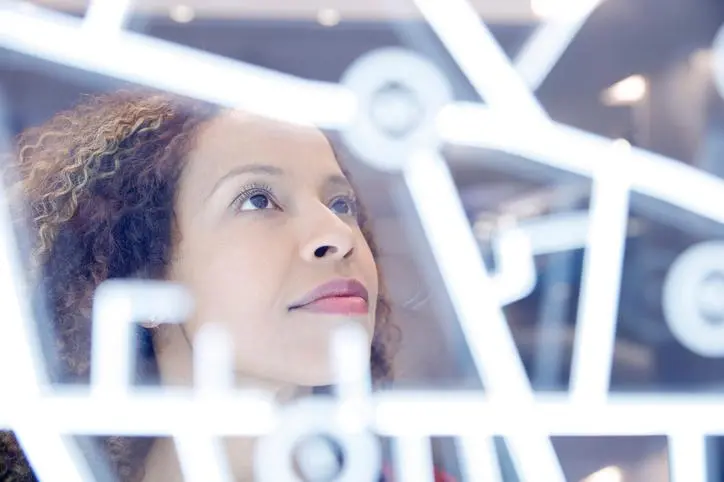PHOTO
Human nature is on a never-ending quest to achieve more and to conquer more. The quest that started in caves has led man to populate megalopolises like New York City and Tokyo. Nowadays, artificial intelligence is the buzzword. All sorts of novel ideas and silly notions are attached to this term. Some people appear to be really excited by the thought of AI doing many things for them, while others are afraid of a hostile takeover and machines enslaving humankind. Both appear to be mistaken or inspired by the bright and dark sides of AI as portrayed in Hollywood movies.
The former don’t seem to understand the basics of AI, while the latter take movies too seriously. I don’t blame those inspired by Hollywood, as that is the nature of modern media. Its bombardment of us with subtle messages does have effects on the human mind, especially those with little knowledge to differentiate between fact and fiction.
Observers may recall the build-up to the year 2000 and the hype surrounding the “Y2k glitch” in computers. The manner in which a minor issue was amplified in the mainstream media was simply ridiculous. The New Year’s Eve celebrations in 1999 were tempered by fears of jets falling out of the skies or malfunctions in sensitive installations. Billions of dollars were reportedly spent on fixing the issue amid fears that computers were only programmed to read up to the last second of the second millennia, but not beyond.
Millions of people awaited destruction of cataclysmic proportions. But Jan. 1, 2000, came and went and, 20 years later, the memories of that time are starting to fade away.
We are today experiencing a similar frenzy over AI and robotics. The fears surrounding AI are increasing with each passing day. It seems that people are generally impressed by the terminology or technical jargon used to describe new ideas or concepts. No matter how intelligent it may become or how flawless the programming or algorithm that is used in the development of an AI-based system, it still needs human intervention at one stage or another. It is intelligent because it performs certain duties or tasks faster and more efficiently but, make no mistake, it continues to be a machine.
The result of modern-day programming is now termed “intelligence” after initially being sensationalized by Hollywood, commercialized by Silicon Valley, sloganeered by stock markets and popularized by the mainstream and new media to add value to dumbness in order to sell it at a premium.
AI is nothing but the brilliance of the human mind (which is capable of extraordinary programming for amazing results) labeled wrongly. If we start believing there is a person living in our fridge, adjusting the temperature and turning the light on every time we open the door, we have simply surrendered to artificial ignorance.
We need to make a concerted effort to get rid of these incorrect notions about AI or robots taking over our jobs, controlling our lives, stealing our money, taking our children and running away with our loved ones. These ideas belong to the fantasy world of movies and have nothing to do with reality.
The smartest computers without brilliant programmers are as dumb as stone and creepy dog robots without brilliant engineering are nothing but metallic junk.
There is nothing to fear about automation, robotics or AI. There is nothing more exciting than digitizing mid-size economies for a digitized world. There is a far better world ahead, when robots and automation will replace all laborious and mundane work, freeing us to think more.
Otherwise, the masters of robots are the ones ready for upskilling and reskilling, while the slaves of robots will be the deniers of change.
There are many ways to escape AI-induced nightmares: Achieve mastery of your craft, constant advancements, digital-mindedness, self-discoveries, critical thinking, complex problem-solving, and mix and match talents to allow you to swim in the rivers of technology that surround us. Study more and think more. The rest is easy.
• Naseem Javed is Chair of Expothon Worldwide, a Canadian think tank.
Copyright: Arab News © 2021 All rights reserved. Provided by SyndiGate Media Inc. (Syndigate.info).





















